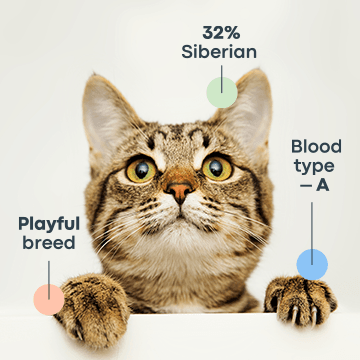Cats, often shrouded in mystery and known for their independent nature, have always fascinated us, their human companions. But a question frequently arises, can cats sense sadness or tell when you're sad? To answer this, it's essential to delve deeper into the emotional world of cats and first find the answers to the questions “What do cats think about?” and “What do cats think of humans?”
Understanding Cat Emotional Intelligence
Cats experience various emotions similar to those of humans and dogs, including happiness, fear, anger, and sadness. However, unlike dogs, cats don't tend to wear their emotions on their sleeves. This subtlety often leads to the question, do cats know their owners well enough to understand their emotional states?
Scientific Evidence
Research has been pivotal in highlighting that cats can indeed recognize human emotions. In a study, researchers in Italy found that cats could discern between happy and angry expressions in humans and other cats. This ability to understand humans also extends to their owners, with a 2015 study showing that cats react differently to their owners' smiles and frowns.
Recognition of Human Emotions
Cats have been shown to recognize human emotions. For example, an Italian study demonstrated that cats could distinguish between the sounds of happiness and anger in humans and other cats. The cats responded by looking longer at the face that matched the emotion of the sound played, such as a hissing cat face when a hissing sound was played.
Reaction to Owner's Emotions
The above-mentioned 2015 study revealed that cats react differently based on their owner's facial expressions. When owners smiled, cats were more likely to exhibit affectionate behaviors like purring and rubbing against them. In contrast, they tended to avoid their owners when they frowned, indicating an ability to sense and react to their owner's emotional state.
How Do Cats Express Emotions?
Cats use various forms of communication to express their emotions. What do cats think of humans? Well, you can guess. They have up to 21 different vocalizations and utilize body language, such as tail movements and eye contact, to convey feelings like relaxation, fear, and aggression. Understanding these subtle cues is critical to comprehending what cats think of humans and their environment.
Can Cats Feel Your Emotions?
Finally, the answer: yes, they can! Cats have shown a remarkable ability to form strong emotional bonds with their owners. They react differently to various human emotional expressions, indicating a sensitivity to our emotional states. This responsiveness suggests that cats may have a deeper understanding of human emotions than previously thought.
The Impact of Human Emotions on Cats
The emotional connection between cats and their owners is a two-way street. Your emotions can significantly affect your cat. Changes in a cat's environment or routine, often influenced by the owner's emotional state, can impact the cat's well-being. It's essential to consider how our emotions, like sadness or stress, can be sensed by our feline companions.
Conclusion
In conclusion, cats can feel a range of emotions and can recognize these emotions in humans. Their ability to sense and react to their owner's feelings, including sadness, highlights the deep bond shared between cats and humans. We can better understand and appreciate these complex and affectionate creatures by paying close attention to cat body language and vocalizations.
Frequently Asked Questions
Can cats understand humans?
Yes, cats can somewhat understand humans, particularly in recognizing different emotional states through facial expressions and vocal cues.
What do cats think about?
While it's challenging to know exactly what cats think about, they likely contemplate their immediate needs and environment, including food, safety, and the presence of familiar or unfamiliar people and other animals.
Can cats sense sadness? Can cats tell when you're sad?
Cats can sense changes in their owner's emotional state, so they may be able to tell when you're sad by observing changes in your behavior and expressions.





